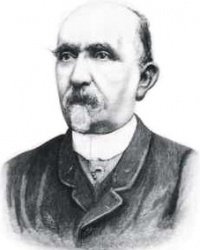The Esoteric Interpretation of Pinocchio
The Esoteric Interpretation of Pinocchio
By VC on December 28, 2009
Needless to say, this movie is now a staple in today’s popular culture. How many people have NOT watched this movie? On the other hand, how many people are aware of Pinocchio’s true underlying meaning? Behind the story of the marionette trying to become a good boy is a deep spiritual story that has its roots in Mystery schools of occultism. Through the eyes of an initiate, the children’s story about “being good” filled with lessons about “not lying” becomes a man’s quest for wisdom and spiritual enlightenment. The brutally honest social commentaries of Pinnochio depicts a grim vision of our modern world and prescribes, perhaps, a way to escape its traps. Through the author’s background and literary references, one can understand the hidden gnostic meaning of Pinocchio.
Pinocchio’s Origins

Carlo Lorenzini aka Carlo Collodi
Pinocchio was originally written by Carlo Lorenzini (known by his pen name, Carlo Collodi) between 1881 and 1883 in Italy. Lorenzini began his writing career in newspapers (Il Lampione and Il Fanfulla ), where he often used satire to express his political views. In 1875, he entered the world of children’s literature and used this outlet to transmit his political convictions. The series Giannettino, for example, often referred to the unification of Italy.
“Lorenzini became fascinated by the idea of using an amiable, rascally character as a means of expressing his own convictions through allegory. In 1880 he began writing Storia di un burattino (“The story of a marionette”), also called Le Avventure di Pinocchio, which was published weekly in Il Giornale dei Bambini (the first Italian newspaper for children).”
Read The Rest At: http://vigilantcitizen.com/moviesandtv/the-esoteric-interpretation-of-pi...
Just Love it when you just search for stuff, and you find little gems like this piece are just hidden with all the gossip BS about Kim Kardashin this...ect.
The website has a bunch of interesting pieces on their esoteric interpretation of some T.V shows and some movies. Inspired me to watch the movie sometime in the near future from a much older and wiser perspective. I always knew something was off about that damn cricket.

